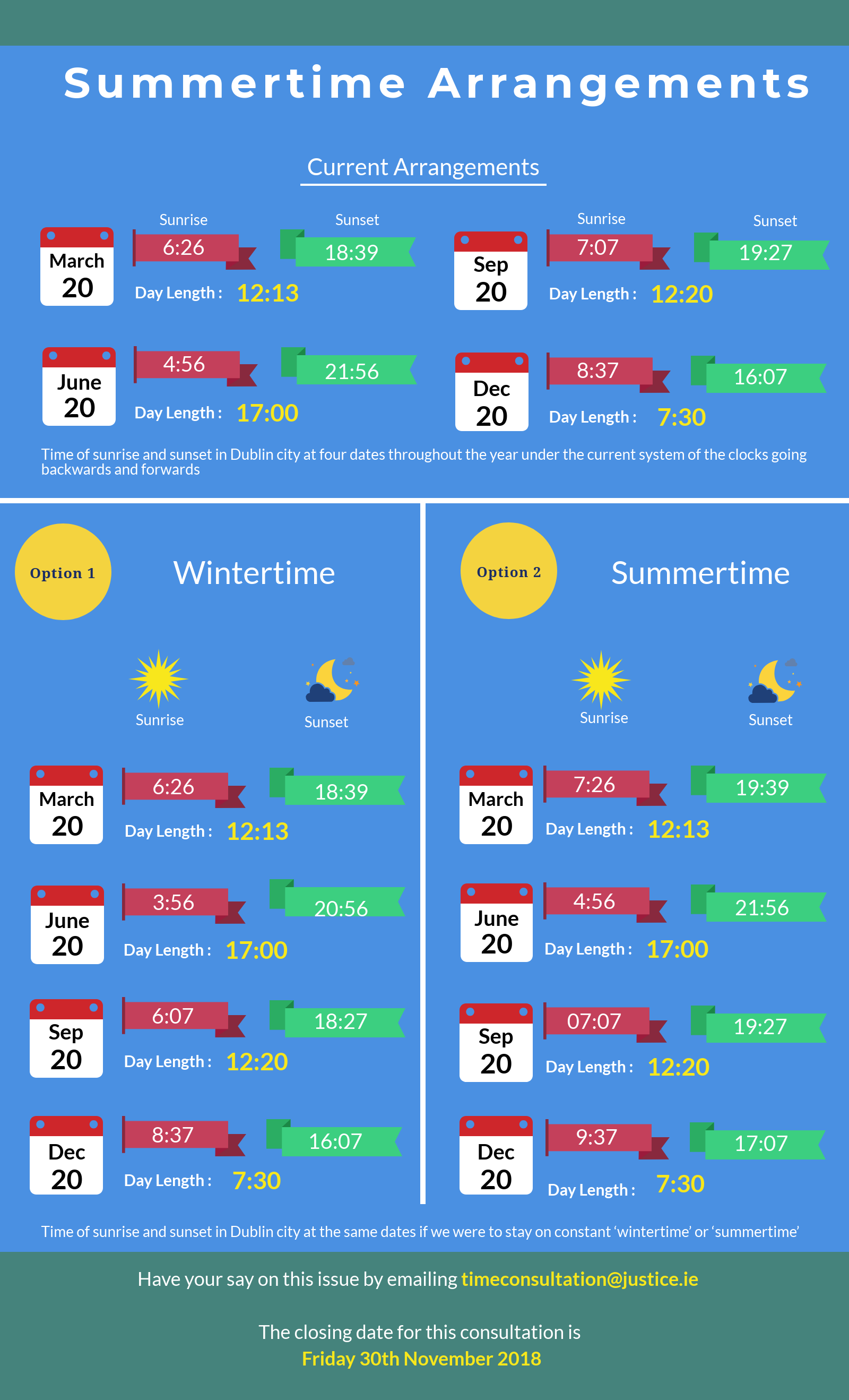You have until tomorrow to throw in your two cents on the matter.
Pretty soon, moving the clocks forward an hour at the end of March and moving them back an hour at the end of October
looks like it will be a thing of the past, with the EU recently revealing that a proposal to end mandatory clock changes from 2019 received huge support.
A whopping 88% of Irish people, for example, came out in favour of ending Daylight Savings Time.
But the issue doesn’t end there.
While it is likely that Daylight Savings Time will come to an end in EU countries, we now have to decide whether the alternative will involve us experiencing longer summer evenings (and longer winter nights as a result), or if we would prefer if daylight lasted a little longer during the winter at the expense of an extra hour’s worth of daylight during the summer.
Sound confused? We don’t blame you. But the images below should give you a clearer idea of the available options.
 Image via The Department of Justice
Image via The Department of Justice
As part of the consultation process, Irish people are being asked to consider and respond to three questions:
- Do you want to stop changing the clocks twice a year? (Irish people have already indicated that they want this to happen)
- If the clock changes stop, do you want to remain on summer time or winter time?
- What would your opinion be if this proposal were to give rise to different time zones between Ireland and Northern Ireland?
Question three is particularly prevalent because, as is indicated on The Department of Justice website, if the UK were to adopt a different position, it “would present particular challenges for the island of Ireland” and “any position adopted by Ireland will be informed by this important consideration”.
Individuals, businesses and organisations in Ireland and Northern Ireland can have their say on the matter here or by emailing
timeconsultation@justice.ie.
A consultation period on the seasonal clock changes closes tomorrow (30 November) so if you do want to have your say on the matter, you’d want to act fast.
More information on the time arrangements is available on the European Commission
here.



 Image via The Department of Justice
As part of the consultation process, Irish people are being asked to consider and respond to three questions:
Image via The Department of Justice
As part of the consultation process, Irish people are being asked to consider and respond to three questions: